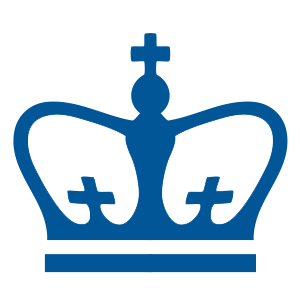New Interdisciplinary Graduate Symposium in Medical Humanities
Interdisciplinary Symposium in Medical Humanities
Columbia University Departments of English, Medical Humanities & Ethics, and The Institute for Comparative Literature and Society
Columbia University has launched a pioneer curricular collaboration between the Arts & Sciences campus in Morningside Heights and the Columbia University Irving Medical Center in Washington Heights. With funding from the Columbia University Provost’s Interdisciplinary Teaching Award towards the initial development of a pilot certificate in medical humanities, co-PIs Arden Hegele (English & Comparative Literature; Institute for Comparative Literature & Society) and Rita Charon (Medical Humanities & Ethics) inaugurate the Interdisciplinary Symposium in Medical Humanities. This unique partnership will bring together graduate students in GSAS into a shared opportunity for knowledge creation in 2020-2021 with clinicians and health professions students from CUIMC.
Medical Humanities has seen exponential growth internationally, both in undergraduate and graduate programs in the humanities, and in clinical training for doctors, nurses, and other health professionals. A continuously emergent field, medical humanities offers a broad umbrella under which to study the influence of medico-scientific ideas and practices on society, bringing clinical understandings of health, illness and disability together with salient approaches from the humanities and social sciences. At stake for medical humanities scholars and students is the interpretive problem of how medical models represent and shape states of embodiment across various historical, cultural, and narrative contexts. In turn, humanists and social scientists working in the field are called to establish and teach a set of competencies—such as observation, attention, judgment, narrative, historical perspective, ethics, and creativity—that can transform and improve the realities of medical practice for both patient and practitioner.
Faculty and students have been engaged, in different ways, in the growth of the medical humanities on the Morningside campus. Many of you have been (or taught) undergraduate students in the Medicine, Literature and Society major track in the Institute for Comparative Literature and Society; graduate students in Narrative Medicine and Bioethics at the School of Professional Studies; speakers in the Explorations in the Medical Humanities lecture series at the Society of Fellows and Heyman Center for the Humanities; members of health-related working groups at the Center for the Study of Social Difference; and participants in University Seminars that consider questions of the body, disability, life, and death. Many more of you bring personal experience of health and illness to your intellectual projects.
This two-part Interdisciplinary Symposium is the ground-breaking step toward what we hope will mature as a multi-year New York State-approved Certificate in Medical Humanities. Our Symposium will be the creative crucible and testing ground for the Certificate. It will not only be a new opportunity for graduate students in the humanities and social sciences to fortify your qualifications as a scholar and teacher of medical humanities, in complement to your primary field of academic study. It will also add your voice and perspective to the ultimate Columbia training program in this emerging field.
We have designed the program to bring scholars of literary studies, philosophy, history, critical race theory, and anthropology, among other disciplines, together with healthcare professionals and students to undertake collaborative learning about how the humanities can transform healthcare. Even as employment prospects in traditional fields have experienced dramatic shrinkage in recent years, medical humanities has become an area of professional growth, with new programs founded nationally and internationally. The Symposium will empower graduates to seek a broader range of teaching positions (e.g. in undergraduate majors or graduate programs, health professions schools, medical residency programs, or hospitals/medical centers). It also features the rare opportunity to work directly with clinicians.
The Interdisciplinary Symposium will convene virtually in the 2020 Fall semester with a virtual writing-based clinical placement, bringing together health professionals and graduate students to co-articulate their experiences during the Covid-19 and racial injustice pandemics. GSAS students may earn credit by taking the Fall clinical placement as an independent study. The following 12-week Spring Semester will host a virtual, Zoom-based weekly 110-minute graduate seminar, taught through GSAS for 4 points of credit. There, we will read and study seminal texts from the humanities and health professions, developing our skills in close reading, scholarly and creative writing, and clinical awareness, along with our capacity to peer into one another’s domains. GSAS students who participate in the Symposium in 2020-21 will receive Columbia-University-backed evidence of rigorous immersion in medical humanities beyond one’s traditional field of training.
We call now for signals of interest, curiosity, or desire to apply to participate in the Interdisciplinary Symposium. Please write Professor Charon and me (emails below) with questions or to receive more detailed information about how to apply.
All the best,
Arden Hegele
Medical Humanities Fellow, SoF/Heyman
Lecturer, English and Comparative Literature
Affiliate faculty: Institute for Comparative Literature and Society
Department of Medical Humanities and Ethics (CUIMC)
Application Period Opens July 7, 2020
Application Deadline: August 10, 2020
Announcement of Participants: August 20, 2020
Rita Charon rac5@columbia.edu
and
Arden Hegele aah2155@columbia.edu









